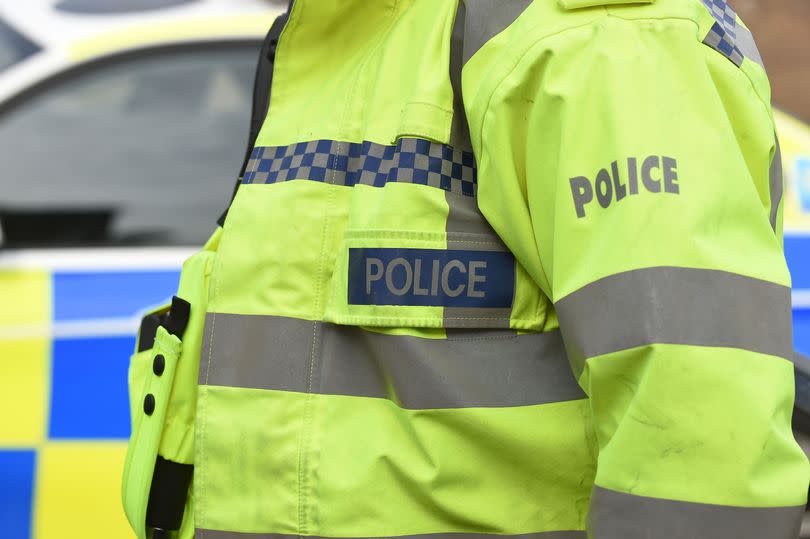Black community 'gaslit' over police tactics as figures show disproportionate use of force

The black community has been “gaslit” by Merseyside Police which has a “significant problem with race” according to campaigners after new data outlined the force’s use of tactics.
As part of ongoing scrutiny of approaches used by officers, figures on how it uses operations including stop and search, force and tasers have been the focus of a hearing held by Merseyside police and crime commissioner, Emily Spurrell. In the session earlier this month, the force presented data indicating performance over the last financial year.
At its peak, 5,623 people were subject to stop and search across Merseyside. This was reached in March last year.
READ MORE: Daniel Gee sentenced after being caught on run
READ MORE: Shop shut over illegal vape sales told it can reopen this summer
However, among those stopped by officers, members of the public who identify as black found themselves almost twice as likely to be searched on average. When considering use of force, those identifying as Caribbean, African, any other black background or white or black Caribbean found themselves were once again disproportionately the subject of force from officers between April 2023 and March this year.
In the last 12 months, tasers have been fired a total of 49 times across the region – which involved four people from black and ethnic minorities. Despite the chief constable claiming “any disproportionality is too high” and almost two and a half years on from the police and crime commissioner declaring the force as being “institutionally racist” - does Merseyside Police have a problem with race?
Chantelle Lunt is a new Knowsley councillor and former police officer. She founded Merseyside Alliance for Racial Equality CIC (MARE), a non-profit organisation committed to promoting racial equality across Merseyside through grassroots community-led education and engagement work.
She said it was high time more was done by the force to protect black communities. She said: “Merseyside Police still has got a lot of work to do.
“Emily Spurrell came out and said the force was institutionally racist. The black community is more likely to face use of force by police and we have been gaslit around it.
“We face this on a daily basis and we’ve not had an apology. Serena Kennedy has quite rightly apologised to the LGBT community but many people have asked, well where is ours?
“You don’t have to wait until black history month to do it.”

Ms Lunt pointed towards the work done by West Midlands and Avon and Somerset constabularies to right historical wrongs. She said: “I’ve sat in too many meetings as a civil rights leader and said we cannot work with you. Other forces have apologised.
“What meaningful action is going to come from this? While black people are more likely to be harmed by police, they can start with an admittance of institutional racism and a meaningful apology.”
According to the police’s own data, current figures of stop and searches equates to 1,225 searches of black people, 2.4% of a total of 50,578 stop searches of people across Merseyside.
Assistant Chief Constable Jenny Wilson said: “While we understand the concerns of our communities in Merseyside and acknowledge there is still work to be done, this compares with a national average of 4.1 times more likely. We are working incredibly hard to improve that figure further and alleviate those concerns, and we've shown improvements with small reductions over the past five years from 2.8 in 2018/19.
"We continue to devote considerable effort into ensuring we use our powers proportionately and subject ourselves to public scrutiny, led by the independent advisory group, to get feedback to help shape our practice."
ACC Wilson added how the power wasn’t used “lightly” but where officers believe people are involved in criminality, they “have and will continue to stop them to ask appropriate questions and seize evidence that could prove vital.”
Jimi Jagne, who was 17 when the Toxteth Riots broke out in 1981, disagreed and said the force had not attempted “anything considered sufficiently progressive to effectively encourage black people living in Liverpool 8, or anywhere else in the city for that matter, to work together at developing a more positive relationship with us.”
He said: “Engaging in various community exercises, the police have, for decades now, always been keen to promote the notion they are essentially anti-racist and have likely convinced many elsewhere in the city that they’ve been prepared to extend themselves in progressing relations with the black community. Far too many black and white people living in L8 have, instead, been convinced of the opposite: that the police have only ever gone so far as to concern themselves with nothing more substantial than window dressing the long, soured history of poor relations between them and us.”
ACC Wilson said she and colleagues within Merseyside Police acknowledged how use of force was more likely to be subjected to those within the black community. She added: “As with our use of stop search, the use of force is carefully monitored and any evidence of its disproportionate use with any demographic is explored and we work hard to address this.”
Despite this, Jimi added how current efforts by police to engage with black people, particularly in L8 had “amounted to nothing more than illusions that have failed to materialise as anything remotely like genuine encouragement” and left young black people “apprehensive” that they could end up being picked up. He said: “Racial profiling and disproportionate levels of stop and search incidents are very real and apparently here to stay.”
The long-term campaigner said how despite Mrs Spurrell’s intervention on racism in May 2022, “Merseyside Police has a significant problem with race in our city.”
Responding to the figures, the police and crime commissioner said: “Police powers, such as stop and search and taser, are important tools used by policing to prevent crime and protect communities. However, it is essential that these powers are used in a proportionate and professional manner and any disproportionality must be weeded out.
“I am reassured to see the rate of disproportionality has reduced over recent years and I welcome the Chief Constable’s commitment, within the Police Race Action Plan, to drive these figures down further. I will continue to closely scrutinise the use of force by Merseyside Police to ensure it is being used in an appropriate and proportionate manner and use my position as police and crime commissioner to make sure Merseyside Police delivers an effective and efficient service to the public, maintaining the high standards we all expect.”
Don't miss the biggest and breaking stories by signing up to the Echo Daily newsletter here

 Yahoo News
Yahoo News 
